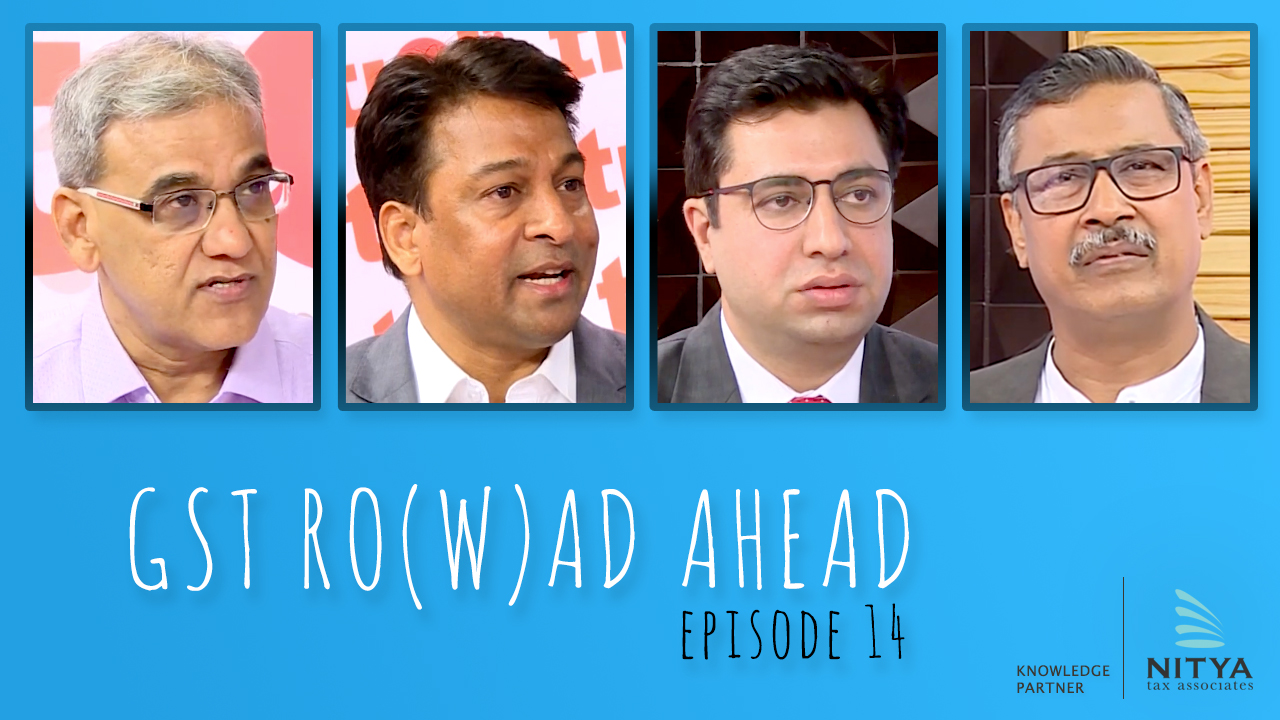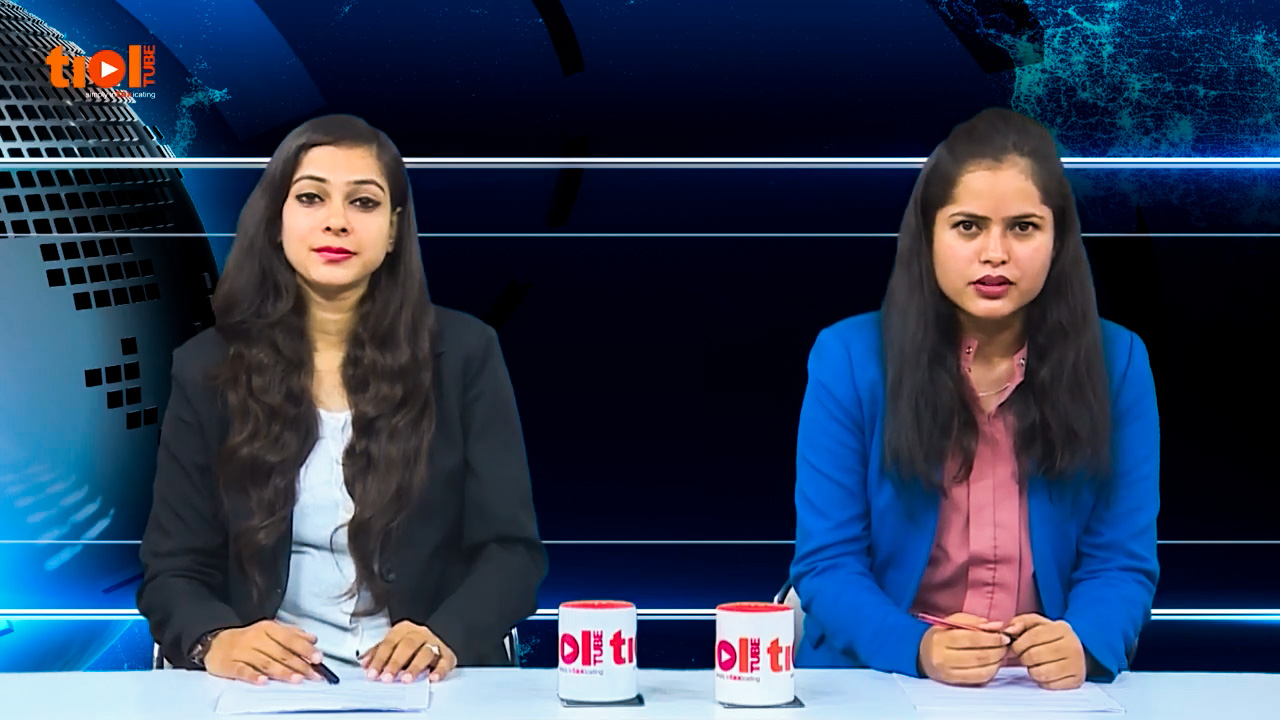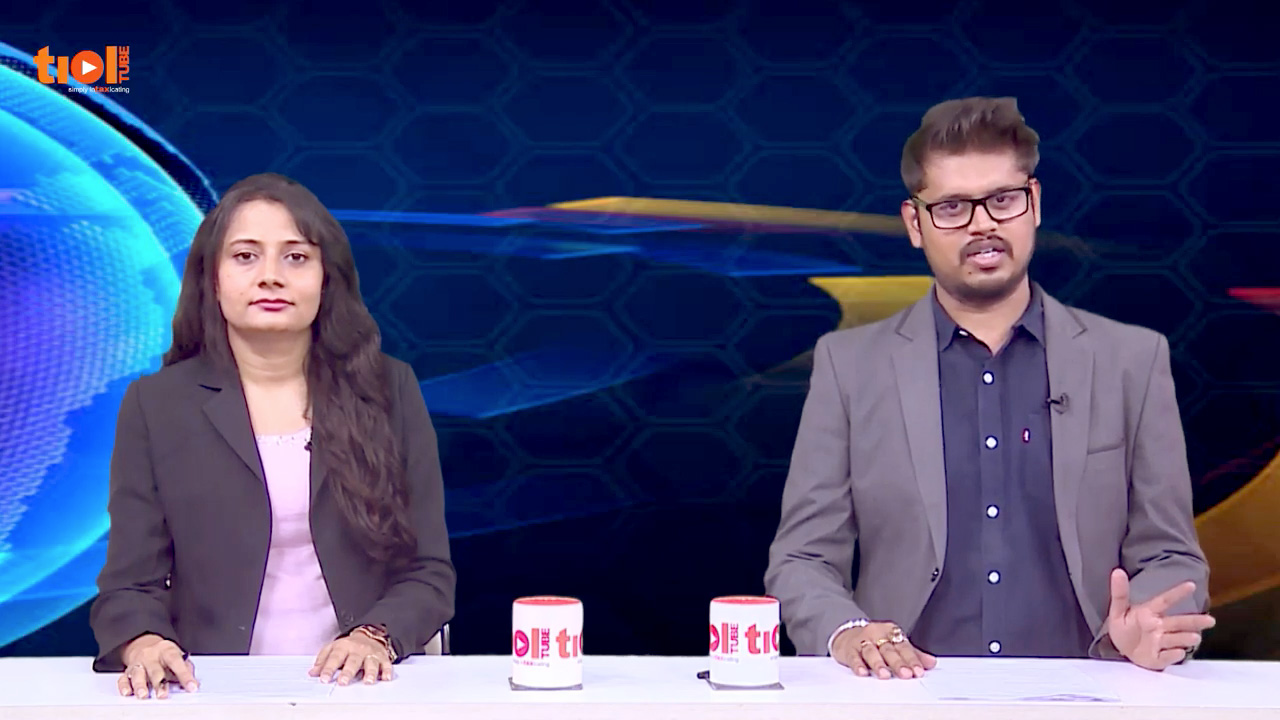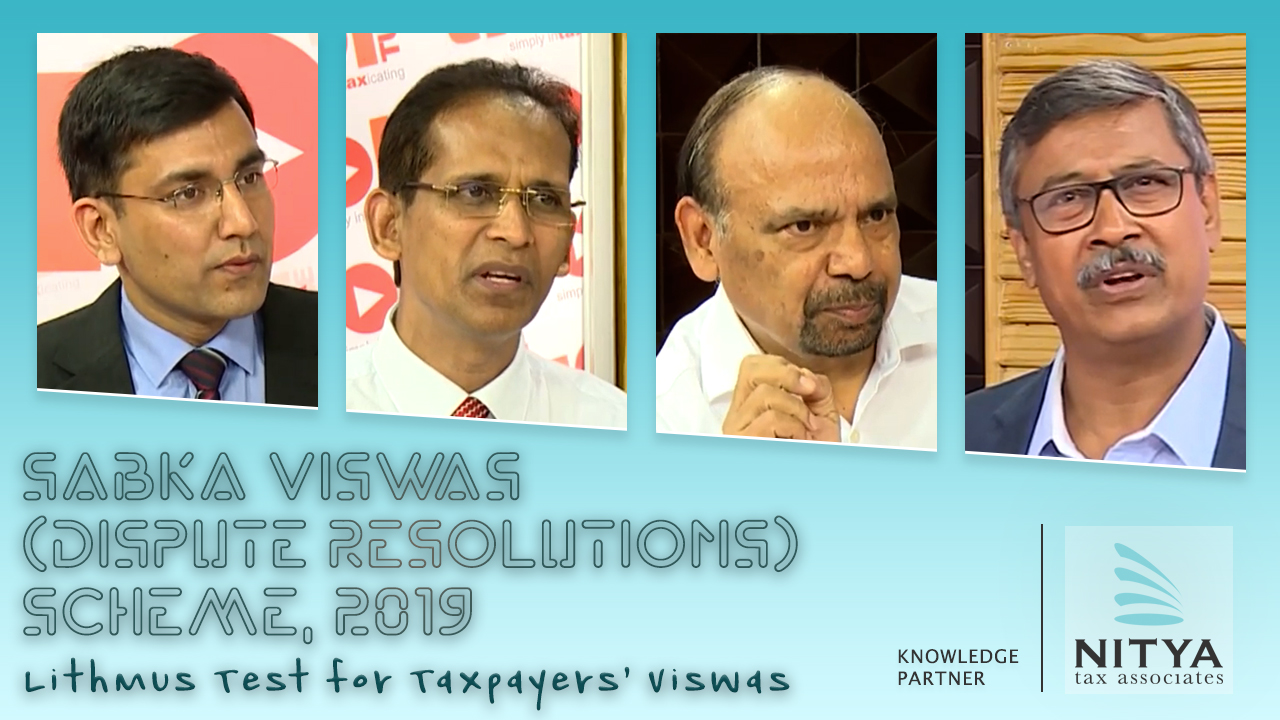| SERVICE TAX 2019-TIOL-2748-CESTAT-MUM
Bajaj Allianz Life Insurance Company Ltd Vs CCE & ST
ST - The assessee is providing taxable services viz. Insurance Auxiliary Service, Life Insurance Service and Management of Investment under ULIP Business Support Service during the relevant period - They have appointed various individuals as well as corporate agents (insurance agents) for the purpose of selling Life insurance products marketed by assessee - There are two issues arises for consideration, one of which is, whether service tax paid by assessee in accordance with Rule 2(1)(d)(iii) of STR, 1994 as recipient of 'Insurance Auxiliary service' and then recovered from the service providers i.e. 'insurance agents' is required to be deposited as per Section 73A(2) of FA, 1994 - The Revenue sought to recover the amount of service tax initially paid by assessee, but later passed on the burden under an agreement/arrangement to the insurance agents, while paying their commission for service received - Neither side raised the issue that the service tax amount paid by assessee has been collected in excess from the insurance agents; it is the plea of Revenue that since the payment of service tax has been cast on the recipient of service by virtue of Rule 2(1)(d)(iii) of STR, 1994, hence, the person liable to discharge service tax should absorb the liability and hence such person is precluded from shifting the burden to the insurance agent - Merely because the tax is collected from service recipient, the character of service tax will not be altered, but it would continue to remain as service tax only - Therefore, the reasoning of Commissioner that since the service tax on Insurance Auxiliary service since to be paid by assessee, is in the nature of direct tax, hence, not authorised to pass on the burden to the Insurance agents, is incorrect and contrary to the principles of law laid down by Supreme Court - The service tax initially paid by assessee and later collected from the insurance agents by adjusting the commission paid, cannot be directed to be deposited under Section 73A(2) of FA, 1994.
The next issue is, the expenses incurred in pre-recruitment training and post licence training of Insurance Agents be includible in value of commission paid to the agents - The prerecruitment training expenses are nothing but training and examination fee provided by assessee to the individuals so as to qualify to work as insurance agent as per IRDA norms - Even though while confirming the demand by including prerecruitment training expenses as well as post licence training expenses in the value of commission, the Commissioner has not specifically referred to the relevant rule, but, in the notice, the said expenditure has been proposed to be included in value of commission paid to insurance agents in accordance with Rule 67 of FA, 1994 read with Rule 5(1) and Rule 6 of STR, 2006 - This issue has been more or less, in the context of inclusion of value of free-issue material in the value of taxable service, has been considered and settled in Bhayana Builders' case by the Supreme Court - The expenses incurred in pre-recruitment training and post licence training of insurance agents by assessee cannot form part of the gross taxable value of commission paid to the Insurance Agents in determining the service tax liability - Since the said issue is a pure question of interpretation of law, hence, imposition of penalty on this count is unwarranted and accordingly same is set aside: CESTAT
- Appeals allowed: MUMBAI CESTAT
2019-TIOL-2747-CESTAT-MAD
Chettinad Cements Corporation Pvt Ltd Vs Commissioner of GST & CE
ST - The issue relates to demand raised alleging that the credit availed on input services in nature of tour operator service - The services were availed as incentive for dealers who achieved the target sale - The SCN is issued against the assessee who is only an ISD - The decisions relied by assessee in the case of Mahindra & Mahindra Ltd. 2017-TIOL-2364-CESTAT-MUM and Kansai Nerolac Paints Ltd. 2018-TIOL-2048-CESTAT-MUM have discussed the said issue as to whether the demand can be raised against the ISD alleging wrong availment of credit when the credit has been availed by the unit company and the ISD has only distributed the credit - Following these decisions, the demand cannot sustain: CESTAT
- Appeal allowed: CHENNAI CESTAT
2019-TIOL-2746-CESTAT-AHM
CST Vs Indian Oil Corporation
ST - The primary dispute is on the entitlement for CENVAT credit of tax discharged on the services of GTA utilized during the relevant period which was allowed by first appellate authority on the strength of certification that was submitted by assessee - Revenue contends that documentation requirements had, admittedly, not been complied with while the assessee, on the submission that the relaxation could be applied only prospectively, contends that the circular of August 2008 is applicable retrospectively - The first appellate authority has placed reliance on the decision of Tribunal in Sir Hind Steel Ltd 2009-TIOL-1523-CESTAT-AHM which, according to grounds of appeal, is pending with High Court of Gujarat on appeal of Revenue - The grounds of appeal have not furnished any evidence to conclude that the 'GTA' did avail credit of duty paid on capital goods or inputs or that they were entitled to CENVAT credit at all - The flexibility afforded by clarification in circular dated 21st August 2008 has been upheld by decision of Tribunal in re Sri Hind Steel Ltd and it is informed that since the filing of this appeal, the High Court of Gujarat has dismissed the plaint of Revenue against the decision in re Sri Hind Steel Ltd - In view of these circumstances, that dispute is now non-existent - No merit found in the appeal of Revenue, which is dismissed: CESTAT
- Appeal dismissed: AHMEDABAD CESTAT
CENTRAL EXCISE 2019-TIOL-2232 -HC-P&H-CX
CCGST Vs Rico Auto Industries Ltd
CX - The assessee is engaged in manufacturing of motor vehicle parts, accessories, moulds and dies - Out of the dies so manufactured, it was found that they cleared 11 dies valued Rs.78,63,225/- under Rule 4(5) (a) of CCR, 2002/2004 under challans to the job workers without payment of duty and the details of said dies were submitted on 7.2.2007 - The Adjudicating Authority ordered confiscation of seized goods valued at Rs.41.50 lacs for contraventions - However, since seized goods had been released provisionally against Bond/Bank Guarantee, therefore fine of Rs.10 lacs was imposed - Further demand of duty amounting to Rs.75,10,289/- was confirmed by invoking extended period under the proviso thereof alongwith penalty equal to the duty amount - Interest at applicable rate was also imposed - Aggrieved against the said order, assessee filed an appeal before Tribunal - The said appeal was allowed by Tribunal in 2018-TIOL-1443-CESTAT-CHD - Hence the present appeal - In view of instructions dated 22.8.2019, the instant appeal would not be maintainable before this Court as the demand amount i.e. Rs.75,10,289/- is to be recovered, which is below the monetary limit of Rs.1 crore - Hence, appeal dismissed as withdrawn: HC
- Appeal dismissed: PUNJAB AND HARYANA HIGH COURT
2019-TIOL-2745-CESTAT-AHM Indian Oil Corporation Ltd Vs CCE & ST
CX - The assessee-company cleared SRGO (Straight Run Gas Oil) from its factory to its own units - These other units, where they supplied SRGO, were also processing this SRGO and converting the same into Light Diesel Oil and cleared the same on payment of duty - Upon investigation, the Revenue collected the internal test reports of such product, namely SRGO, from their factory and based on the parameters listed in the report, concluded that the products cleared by the assessee to its units is not SRGO but is LDO - Hence duty demand was raised.
Held - For the purposes of classification of the goods under the Heading 2910 1940 as LDO, the product needs to answer to the definition of LDO as per para (f) of the supplementary notes to Chapter 27 of the CETA 1985 - While the IS parameters for LDO were changed in 2008, the definition was not amended by the Revenue - Post 2008 IS 1460:2000 apply solely to HDO and for the purpose of LDO, a different IS was introduced, namely IS-15770:2008 - It is seen that the Revenue did not draw any samples and relied on the internal reports of the assessee to conclude that the product SRGO answered to the parameters prescribed under IS: 1460:2000 - While it is incorrect to test LDO against the parameters prescribed in IS 1460:2000 which applies solely to HDO after 2008, it is seen that the test reports of the assessee do not cover a large number of parameters prescribed in IS 1460:2000 - The same applies to the parameters available in IS 15770:2008 - Besides, the assessee claimed that clearance of SRGO attracted levy of Central Excise duty as LDO in their other plants, after the same is processed - This renders the situation to be revenue neutral - Hence the duty demanded merits being quashed: CESTAT
- Assessee's appeal allowed: AHMEDABAD CESTAT
2019-TIOL-2744-CESTAT-HYD
CCT Vs GR Power Switchgear Ltd
CX - The assessee-company manufactures PSC Cement falling under Chapter 25 of CETH 1985 and availed Cenvat credit as per CCR 2004 - Upon audit, it was observed that the assessee availed irregular cenvat credit on certain input service bills during the relevant period & that such service was not used directly or indirectly in the manufacture of the final product - Thereafter, SCN was issued to the assessee proposing to disallow credit and recover the same with interest & imposition of penalty - The adjudicating authority appropriated the duty and interest - On appeal, the Commr.(A) allowed partial relief wherein the duty demand with interest was quashed but the penalty imposed was sustained - Hence the present appeal.
Held - The issue at hand stands resolved by the decision of the High Court of Karnataka in the case of CCE, Bangalore Vs. Geneva Fine Punch Enclosures Ltd wherein it was held that Section 11A(2B) provided for not issuing SCN in case duty demand is paid before issuing the SCN and that since the assessee therein had fulfilled such condition, no penalty was found to be imposable - The findings in this case are squarely applicable to the matter at hand - Hence the order imposing penalty is not sustainable in law: CESTAT
- Revenue's appeal dismissed: HYDERABAD CESTAT
2019-TIOL-2743-CESTAT-BANG
JSW Cement Ltd Vs CCT & CE
CX - The assessee-company manufactures PSC Cement falling under Chapter 25 of CETH 1985 and availed Cenvat credit as per CCR 2004 - Upon audit, it was observed that the assessee availed irregular cenvat credit on certain input service bills during the relevant period & that such service was not used directly or indirectly in the manufacture of the final product - Thereafter, SCN was issued to the assessee proposing to disallow credit and recover the same with interest & imposition of penalty - The adjudicating authority appropriated the duty and interest - On appeal, the Commr.(A) allowed partial relief wherein the duty demand with interest was quashed but the penalty imposed was sustained - Hence the present appeal.
Held - The issue at hand stands resolved by the decision of the High Court of Karnataka in the case of CCE, Bangalore Vs. Geneva Fine Punch Enclosures Ltd wherein it was held that Section 11A(2B) provided for not issuing SCN in case duty demand is paid before issuing the SCN and that since the assessee therein had fulfilled such condition, no penalty was found to be imposable - The findings in this case are squarely applicable to the matter at hand - Hence the order imposing penalty is not sustainable in law: CESTAT
- Assessee's appeal allowed: BANGALORE CESTAT
CUSTOMS
2019-TIOL-2742-CESTAT-MUM
Schlumberger Solutions Pvt Ltd Vs CC
Cus - The assessee/exporters had filed shipping bills under claim of drawback under Section 74 of Customs Act, 1962, for re-export of imported Oil Well Equipment after completion of project in India - The concerned appraising officers raised objection about the identity of goods - The exporters submitted their explanation on several occasions through letters as well as in person w.r.t. the import documents but the officers refused to accept that goods were actually those which were imported earlier for the Oil exploration project - A SCN was issued to exporters and adjudicated by Commissioner who held that the identity of goods re-exported was not established vis-à-vis corresponding import documents - The imports have occurred during July to September 2010; initially the goods were put for export by filing shipping bills - The goods could not be exported due to the objections raised by department and SCN issued and subsequent proceedings in Tribunal - After fulfilling the conditions laid down by Tribunal, customs have allowed the goods to be re-exported on 08.02.2013; LEO was issued on 29.03.2013 and goods were finally exported on 13.04.2013 - It is not the case of department that the goods presented for export on 01.12.2010 and goods which were exported finally on 13.04.2013 are not different - Therefore, the time period of two years requires to be reckoned up to the initial filing of the shipping bills i.e. 01.12.2010 and not the date on which LEO was given after prolonged litigation - The assessee is not responsible for the delay - Having initiated such a litigation, department cannot hold that as the LEO was issued on 29.03.2013 the re-export is beyond the period of two years - In fact the assessee have lost some goods due to pilferage at the CFS in bargain - At this juncture not denying them the benefit of drawback at least on the part of the goods that were exported would be grave injustice to the assessee and is not maintainable - It is settled principle of law that while computing the limitation, time taken for litigation should be excluded - Assessee cannot be put to jeopardy due to the objections raised by department which to a greater extent got nullified by report of Intertek, the exports appointed for this purpose - Therefore, Tribunal is inclined to consider the submissions of assessee that the reexport should be treated as made in time and drawback should be allowed to the extent of the part of goods that were actually reexported - The impugned order is set aside: CESTAT
- Appeals allowed: MUMBAI CESTAT
2019-TIOL-2741-CESTAT-BANG
Schenker India Pvt Ltd Vs CC
Cus - The appeal is directed against impugned order whereby the Commissioner (A) has rejected the appeal of assessee and upheld the O-I-O whereby the penalty of Rs.50,000/- has been imposed on assessee under Section 117 of Customs Act, 1962 - The assessee before filing the Bill of Entry has sent the checklist and after confirmation from the importer, he filed the bill of Entry containing the details which were supplied to him by the importer - Assessee has filed the Bill of Entry on the basis of invoices which is given to him and if the importer has given him the wrong invoice then it is the importer who has contravened the provisions of the Act and penalty should have been imposed on importer and not the assessee who is only acting as a CHA - The department has not brought any evidence on record to prove that the assessee had knowledge of final invoice - This issue has been considered in many decisions of Tribunal and it has been consistently held that if there is no evidence of aiding and abetting against the CHA, then penalty cannot be imposed on CHA - Imposition of penalty of Rs.50,000/- on assessee under Section 117 of Customs Act, 1962 is not sustainable in law and therefore, the same is set aside: CESTAT
- Appeal allowed: BANGALORE CESTAT |








